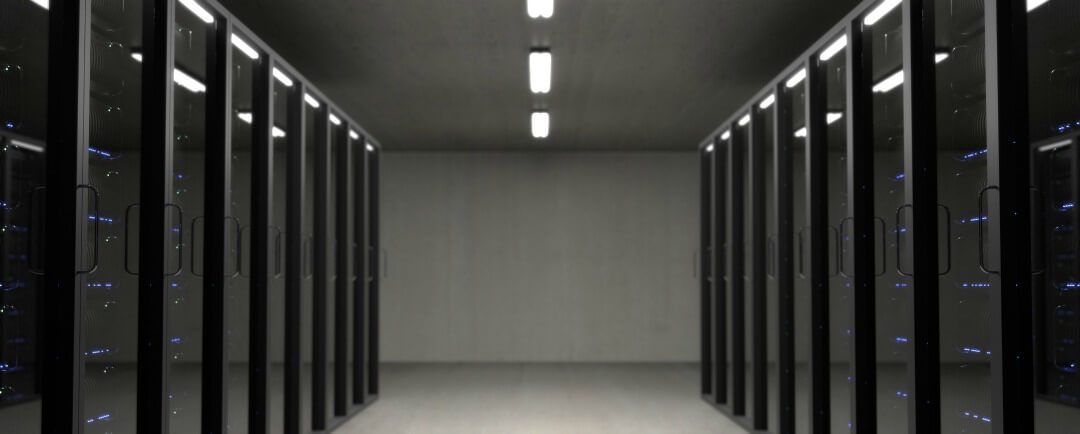If you’ve had some data loss, and you’re worried that either you don’t know how to recover it yourself or the data is too sensitive to give to anyone other than a professional, then the only thing left to do is go to a professional data recovery service.
These businesses specialize in recovering lost files, getting back your accidentally deleted files, computer setup and installation, computer software and hardware configuration to prevent corrupted files and data loss, and the removal of sensitive data before you sell or repurpose your old computer or phone.
They are experts for a reason – some of these services are very intensive, and require a lot of training and expertise. Here you can learn what a data recovery service is, when you should attempt data recovery yourself, and when you should hire a professional for your data recovery needs.

What Is a Professional Data Recovery Service
A professional data recovery service serves two purposes. Firstly, it serves to prevent data loss, and secondly, to recover data if and when it is lost.
In order to prevent data loss, data recovery services do several things: Data Loss Prevention (DLP), firewalls, Intrusion Detection Systems (IDSs), and antivirus software. Additionally, data recovery services can transfer data for clients to prevent any mistakes being made and any data loss that may accompany that.
Data Loss Prevention [link to PDM’s DLP blog post] is a strategy which controls the sharing of sensitive information among a computer network. Certain users can gain access to sensitive files, while others can’t, and sharing rules are enforced by computer programs.
Intrusion Detection Systems are systems which can identify attempts to enter the network by an outside source, and a firewall prevents these intrusion attempts. Anti-virus software detects unauthorized malware on your computer or in the network, allowing the IT department to react and protect its data.
The best medicine is prevention, as the old saying goes, and data recovery services can provide these services to prevent data loss before it happens.
If data loss does occur, however, data recovery services can help there too. If you accidentally deleted photos, or your hard drive had a logical failure, or was physically damaged in any way, then asking a professional for help is the next step.
Professionals can manage and scrape content from internal or external hard disk drives (HDDs), solid-state drives (SSDs), USB flash drives, magnetic tapes, CDs, DVDs, RAID subsystems, and other electronic devices in an attempt to salvage your data. They offer a range of data recovery and computer repair services.

When to Hire a Professional Data Recovery Service
So you know what a professional data recovery service does now, but when should you attempt to recover your data on your own, and when should you call the expert?
It all depends on how comfortable you are with technology, and how sensitive your data is. For a camera memory card with your personal photos on it, you might want to attempt to buy some file recovery software before you take it to a professional, simply because it is one of the simpler data recoveries you can attempt, and there are tons of tutorials online to walk you through the process.
For computer files and network problems, especially data which is sensitive and which you do not want lost forever or open to the public, a professional data recovery expert might be in order.
Conclusion
While data loss and recovery can be very stressful and very confusing, there is no need to worry. Data recovery services are professionals, and can walk you through any data loss situation you find yourself in.
Submit your case with ProData Management today!


I lost over 200k in an investment trading bitcoin company last month and i was down and out cos the company refused to give me a withdraw and still me for more money if i wanted my withdraw .. My Dad introduced me to his recovery agent✓ ROTTGENRAPHAEL AT GMAILCOM / and i gave it a go .. Now i have half of my funds back , I will be getting the rest this week .. I am so happy and grateful .. Sharing this with the world ..
## Comment SPAM Protection: Shield Security marked this comment as “Pending Moderation”. Reason: Human SPAM filter found “spyware” in “comment_content” ##
Good morning everyone. I would rather not frighten people, but the increase in online thievery worries me. An investment fraud business that claimed a 100% return in a week conned a relative of mine. Although it is insatiable, everyone could experience it. Instead of being afraid, the first line of protection is to seek help. You can get help, that much is true. In his case, he finished his research and had the good fortune to discover a legitimate hacking group named SPYWARE CYBER. They were able to quickly seize the money from the dishonest business. I had no idea that was possible, but knowledge truly is power, as they say. In an effort to educate others, I’ve made the decision to impart that knowledge to others today. Additionally, you can contact SPYWARE(AT)CYBERGAL.COM to report about your stolen cryptocurrency.
Much Regards.
## Comment SPAM Protection: Shield Security marked this comment as “Pending Moderation”. Reason: Human SPAM filter found “btc wallet” in “comment_content” ##
To all of you out there, I simply want to share my story. I tried to invest my money in BTC, which led to myself being financially destroyed by an internet charlatan. I fell for an enticement involving bitcoin investments, wherein you are required to hold onto any funds in your BTC wallet. I regrettably ended up in the wrong hands because the idea seemed really excellent. You may picture the amount at risk considering that I invested $3,000 every two weeks out of my savings for a few months. The crooks completely cut off all forms of interpersonal interaction with me, and I never received any return on my investment. After speaking with an acquaintance, I was introduced to Wizard Web Recovery, An entity that recovers stolen Bitcoin. Within a few business days after I informed them of the incidents, they returned 95% of my cash. At the same time, I was surprised and delighted. Please get in touch through the website (wizardwebrecovery.net) for urgent assistance.
## Comment SPAM Protection: Shield Security marked this comment as “Pending Moderation”. Reason: Human SPAM filter found “buy crypto” in “comment_content” ##
I was persuaded to buy cryptocurrency by someone I met online.They have access to a group of analysts that provided reliable predictions for the rise and fall of BTC. I initially attempted with a modest amount just to be sure, and I was successful in withdrawing money twice. This demonstrated a growth in the signals I was receiving. I made the decision to include corporate funds as well. When I tried to contact the individual at that point, he had banned all of his connections, which is when everything started to go wrong. I tried everything until a professional hacker directed me to Wizard Web Recovery, A company that helps individuals and businesses recover their stolen BTC assets. They truly helped me to recover everything at an affordable fee and I was elated. If you are in the same boat, To learn more about them kindly visit their website: www. wizardwebrecovery.net
## Comment SPAM Protection: Shield Security marked this comment as “Pending Moderation”. Reason: Human SPAM filter found “article online” in “comment_content” ##
Hello, my name is Ryan Chloe. I want to share with the world my sad experience with a fake cryptocurrency scammer after falling for his gimmicks. I was catfished by a man on POF, he then introduced me to this fake crypto miner. Honestly, everything the scammer showed me looks legit worth giving it a shot as it’s a short-term investment with lots of profits. My investment later turned sour and It was the saddest moment of my life because I couldn’t believe what had happened. How I just lost $438.000.00 within a period of 3 months to this scammer. I reported to the authorities and there weren’t helping in anyways to help me recover my lost fund. I had lost at a point and was falling into depression until I came across an article online about Ethical hackers and their expertise in recovering BTC. I search for one and that’s when I discovered ROOTKITS SPAMMER. A hacker who could help me recover my funds, to my surprise ROOTKITS SPAMMER was able to trace and recouped every penny I thought I had lost. I am sharing this with the world because ROOTKITS saved my life and my career. Contact them at (spammer (@) fastservice.com) or +351 920 258 835
## Comment SPAM Protection: Shield Security marked this comment as “Pending Moderation”. Reason: Human SPAM filter found “bitcoins” in “comment_content” ##
By email or WhatsApp, you can get in touch with Coin recovery specialists at [email protected] or +447448074936……Hello to each of you. Larry Moore…..
I recommend going to https://.coinrecoveryspecialists.com from a reliable source to recover any bitcoin. I would currently be homeless and deeply in debt if Coin Recovery hadn’t helped me recover every penny that had been fraudulently taken from me through bitcoin investments. Whether I’m at home, in jail, or both, I sincerely appreciate his assistance and knowledge in making sure I get everything back. I protested to them after reading their email that I had been duped by a fake cryptocurrency and foreign exchange investor. All of the money that was taken from me using Bitcoins was recovered in less than 48 hours.
By email or WhatsApp, you can get in touch with Coin recovery specialists at [email protected] or +447448074936……Hello to each of you. Larry Moore…..
I recommend going to https://.coinrecoveryspecialists.com from a reliable source to recover any bitcoin. I would currently be homeless and deeply in debt if Coin Recovery hadn’t helped me recover every penny that had been fraudulently taken from me through bitcoin investments. Whether I’m at home, in jail, or both, I sincerely appreciate his assistance and knowledge in making sure I get everything back. I protested to them after reading their email that I had been duped by a fake cryptocurrency and foreign exchange investor. All of the money that was taken from me using Bitcoins was recovered in less than 48 hours.
## Comment SPAM Protection: Shield Security marked this comment as “Pending Moderation”. Reason: Human SPAM filter found “thanks for the post” in “comment_content” ##
thanks for the post, I didn’t even google that information when I was looking for nursing writing services 🙂
## Comment SPAM Protection: Shield Security marked this comment as “Pending Moderation”. Reason: Human SPAM filter found “crypto coin” in “comment_content” ##
If anyone out there is in need of a legit hacker for hire to retrieve stolen crypto coins, hack Gmail, social networks, upgrade school grades, and MORE, look no further and contact CYBER GENIE INT’L. He helped me tremendously with recouping the digital crypto assets that I lost to a fake Brazilian crypto mining company recently. Cyber Genie is always there to help when needed. If I can give the Cyber Genie team more stars for job satisfaction, I would because 5 stars are not enough!!
Email: Cybergenie (@) cyberservices . com
W/A: +’1’25’2’5’1’2-0’3’9’1′
Thank you for everything, CYBER GENIE TEAM!!
## Comment SPAM Protection: Shield Security marked this comment as “Pending Moderation”. Reason: Human SPAM filter found “wonderful post” in “comment_content” ##
Your post is very helpful and the information is reliable. hemsworth extraction 2 puffer jacket I am satisfied with your post. Thank you so much for sharing this wonderful post.
Please, everyone should tread carefully with all these crypto brokers and crypto mining managers on social networks. I was duped with a whooping sum $ 640,000 of my investment capital by a broker I met via #Telegram. They kept on assuring me of my investment success growth while requesting for extra funds before a withdrawal request could be accepted and processed to access my investment, at the end of all my constant deposit, I lost all my money. All efforts trying to get them to return all I had invested with them was futile because they kept asking me for more money. I found myself in a very confusing state till recently when I was introduced to this group of Ethical Hackers. I wrote an email on ( cybergenie(@)cyberservices .co m) to them detailing my experience with that crypto broker, and they replied to me to provide proof of my investment with the said broker which I did, Lo and behold, before the end of the day, I got a notification from Trust Wallet of an incoming deposit, all that I lost was retrieved successfully..
A new technology was detected for the recovery of lost cryptocurrency by A hacker, this technology is currently used by Adrian Lamo Hacker. They are best at recovering cryptocurrency and lost accounts, this hacker has been helping a lot of people to recover their lost funds most especially me I lost $147,000 to a fake wallet Address Adrian Lamo hacker recovered it the same day I brought the case to them, if you’re in these same issues or case you can as well report your case to them through their email: [email protected]